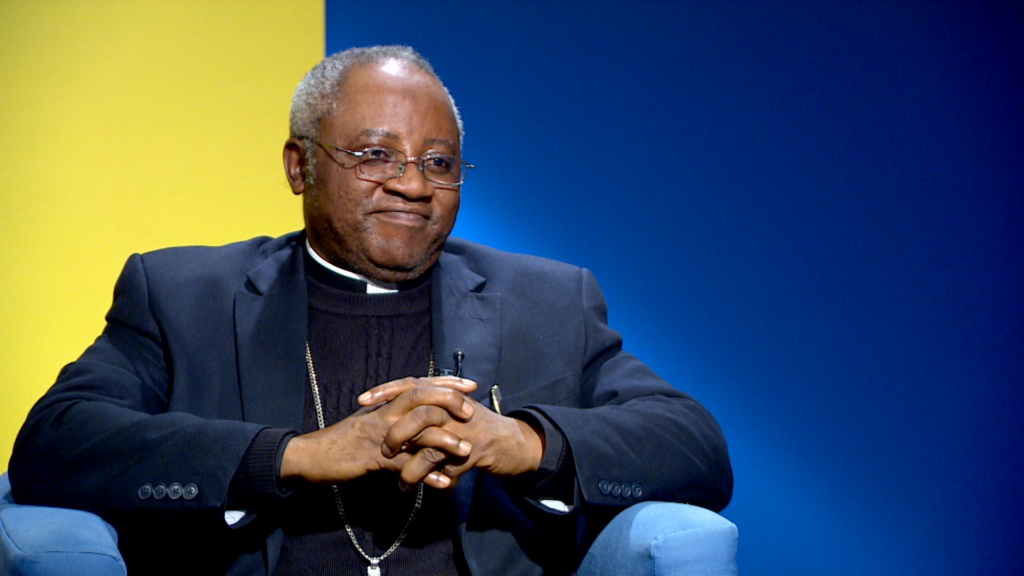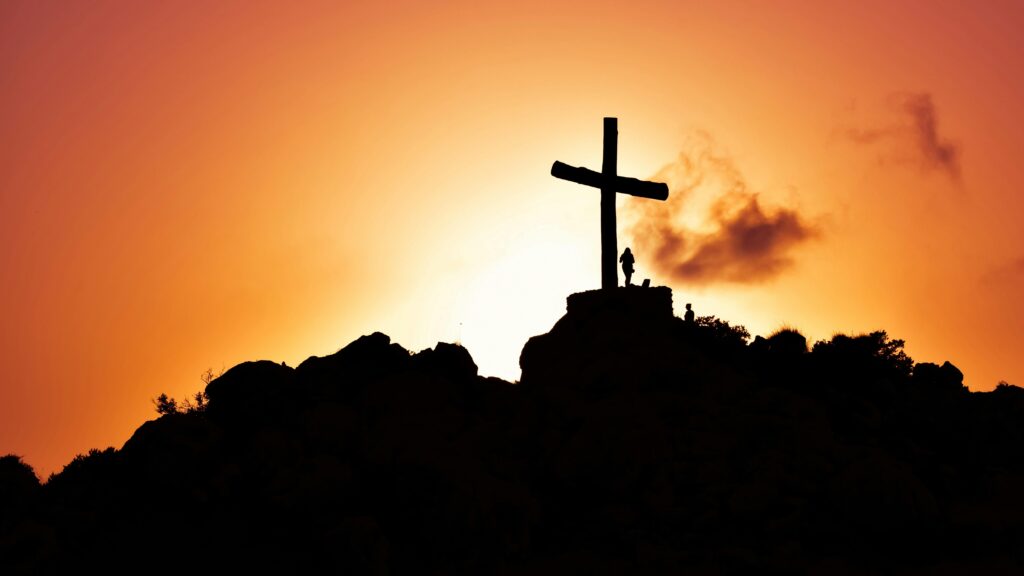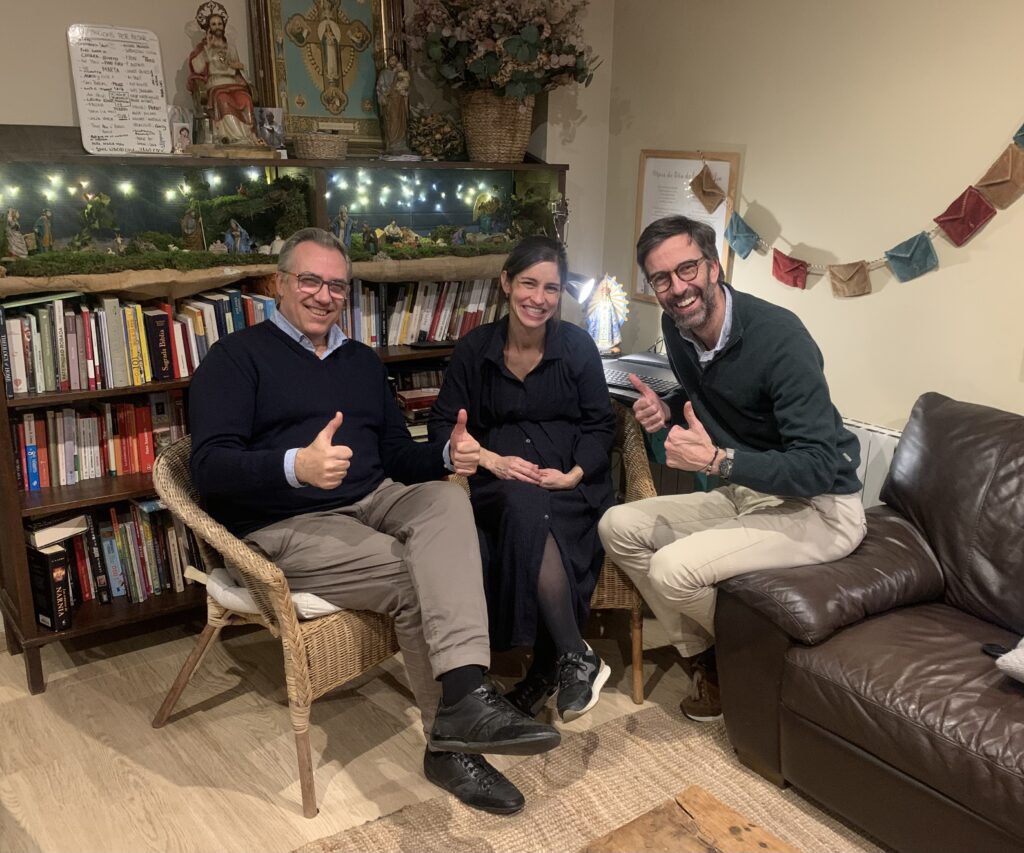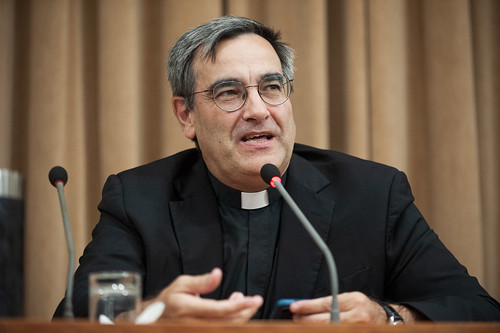«The sick need shelter, support, unconditional love and reconciliation»
María, nurse at the Rey Juan Carlos Hospital

Every 11th of February, the feast of Our Lady of Lourdes, the Church celebrates the World Day of the Sick. This year the motto is ‘In hope we were saved’. María is 38 years old, she has worked at the hospital since 2012 and in palliative care since 2014.
Although she is from Linares, she has made Alcorcón her place of residence. She lives especially on this day dedicated to the sick.
What is the hardest thing about it?
The hardest thing is probably working very close to the suffering of people and death since our role is to alleviate as much as possible everything that makes it difficult in some way to be able to live an end in a dignified manner with good control of symptoms, and other spheres that may be altered at this stage. In palliative care, we consider death as a natural process of life, and we try to be present in everything that can be helpful.
What does the World Day of the Sick mean to you?
It is a call to all people to give light to the sick and promote compassion towards involvement with those who need it most, showing the importance of service through accompaniment, care and volunteering.
Jesus is very present in vulnerability and shows closeness and accompaniment to those who need it, therefore, Christians, as followers of Christ, are also called to this service, each one from their circumstances.
How do you help the Pastoral of Health?
I work in coordination with them and with the hospital chaplains. Spiritual accompaniment is part of the comprehensive care of palliative care and for that it is essential to work as a team with the pastoral of health. Just as, the social approach must be done through social workers.
Has your work had anything to do with your approach to faith?
I don’t know if it has had anything to do with it and if it is my patients who have led me, in part, to seek God, but what I do know is that recognizing Him and living in communion with Him is part of the daily work of each of my patients, their families and the people I work with. Therefore, this approach has changed quite a bit the way in which I care for them, accompany them and support them. Recognizing that God has entrusted you with the mission of being there in such difficult moments makes me live my work with intensity and service despite it being my profession.
What do the sick need most from the Church?
Reception, accompaniment, unconditional love, reconciliation, from all the people who make up the Church and from the Priests, in addition to the closeness of being able to continue living from Christ despite the difficulties they may have due to their illness, it is important to make the sacraments accessible to them and guide them spiritually at the end of life in order to give them rest in all the anguish that death itself brings in our society.
How would you encourage others to volunteer?
In fact, I try to do so and in the parish I encourage people to accompany those who need it most. For me, it is a gift to be able to be close to them and that is why I want that gift for everyone. They are the ones who teach us how to live and if you live completely removed from death, you may not be aware of the finitude of our time on earth.
Are you going to leave this Day in a special way?
I live it with faith that God never abandons any of those we care for or those who need to be cared for. That He always reaches out to us and that through palliative culture it is possible to raise awareness of the importance of accompanying the sick. In addition to launching a beautiful initiative such as Red Palliative, which through social networks seeks to reach people with the message of compassion, accompaniment and the end of life without escaping suffering.
Related

Despite hardships, Christianity is growing “astronomically” in northern Nigeria
Ayuda a la Iglesia Necesitada
10 April, 2025
3 min

“Christianity, a Powerful Engine of Social Transformation”
Exaudi Staff
09 April, 2025
3 min

Let God be God
Albert Cortina
11 March, 2025
25 min

Fernando Puig, new rector of Santa Croce
Fundación CARF
19 February, 2025
6 min
 (EN)
(EN)
 (ES)
(ES)
 (IT)
(IT)

